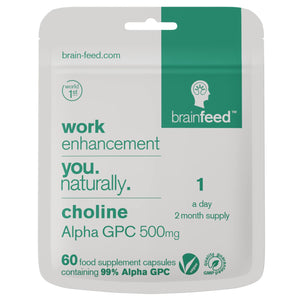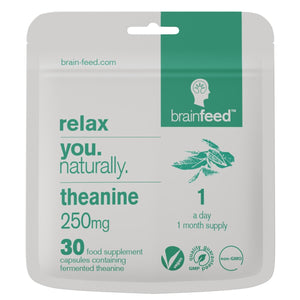Experiencing period brain fog? Here’s 3 foods to eat on your period
filter
The menstrual cycle is a healthy life function that occurs for around 40 years of a woman’s life. Over 20% of the world’s population menstruates every month[1 Trusted Source 2020 - UNICEF 3rd-party source Menstrual hygiene ] . Despite being an important part of reproductive health, most women would be happy to avoid its physical and mental symptoms like cramps, lethargy and low mood during the period. The hormones that support your reproductive health, like oestrogen and progesterone also influence your brain health. Learning how they work can help you understand your period brain and the link between periods and mental health. This can help you navigate your cycle better and take control of how you feel on those days.
Why do I feel weird before my period?
Your period comprises 2 main phases[2 Trusted Source 2022 - Frontiers in Behavioral Neuroscience Research evaluation GABA System Modifications During Periods of Hormonal Flux Across the Female Lifespan ] . They affect the two main female sex hormones, progesterone and oestrogen. The follicular phase is the first half of your cycle, during which oestrogen starts to rise steadily and peaks just before ovulation when the egg is released. This phase ends at ovulation where oestrogen starts a decline. The release of the eggs produces high amounts of progesterone. This begins the luteal phase. Oestrogen levels are lower compared to the first phase. Why do I get brain fog before my period? As you approach your periods, there is a downhill trend of oestrogen and progesterone. The luteal phase ends with periods, during which oestrogen and progesterone both decrease and remain low for a few days. This is the main reason why you’re experiencing period brain fog & PMS.
Why do I have brain fog during my period?
The symptoms of low mood, fatigue, feeling stressed and having difficulties concentrating are known as brain fog. Menstruation is usually marked by low levels of both oestrogen and progesterone which also affect other processes in the body. For example, attention and memory test scores are lower during the luteal phase due to a downward trend in these hormones[3 Trusted Source 2020 - Brain Sciences Systematic and meta-analysis Cognition, The Menstrual Cycle, and Premenstrual Disorders: A Review ] . Both of the sex hormones also affect other brain chemicals. Let’s take a look at how that happens.
How do you treat period brain?
You can effectively support your well-being during your period when you focus on the two sex hormones and other brain chemicals that are responsible for mood, sleep, relaxation, memory and attention. Is there a way to support yourself during this time of the month? Yes, your diet can play a key role. What foods are good for period brain? From protein-rich meals to tea, here’s a breakdown of what foods to eat on your period.
1. Memory and attention
Reproductive hormones also participate in producing new brain cells and improving connections between cells[4 Trusted Source 2018 - Frontiers in Public Health Research evaluation Steroid Hormones and Their Action in Women's Brains: The Importance of Hormonal Balance ] . This influence on the structure of brain cells impacts cognitive skills like memory and attention. Brain scans show that post-period you have higher volumes of brain cells that carry information and help in learning and memory[5 Trusted Source 2008 - Hippocampus Human study Hippocampal structural changes across the menstrual cycle ] . This is one reason why your brain feels “fuzzy” during your periods when these hormones are low.
To focus and learn better, increase your memory levels and learn the brain chemical, acetylcholine. It is made from a nutrient called choline found in foods like egg yolk, soy, and liver. Its supplemental form, Alpha GPC, is one of the best sources because it increases acetylcholine levels within 3 hours in your learning and memory area[6 Trusted Source 2023 - Examine 3rd-party source Alpha GPC ] ,[7 Trusted Source 2013 - Clinical Chemistry and Laboratory Medicine Clinical chemistry and laboratory medicine Choline-containing phospholipids: relevance to brain functional pathways ] . Beat the “fuzzy” period brain with higher levels of acetylcholine so you can regain your laser-sharp focus in whatever you do. The world’s 1st capsule containing 99% Alpha GPC, provides 500 mg Alpha GPC dosage to pump up your acetylcholine levels.
2. Relaxation and de-stress
Your relaxing brain chemical, GABA, is influenced by progesterone. High progesterone levels promote higher production of GABA in healthy women. In women with period-related mood disorders, low mood is seen even when GABA levels are high due to brain cells being less sensitive to GABA’s presence[8 Trusted Source 2022 - MSD Manuals 3rd-party source Menstrual Cycle ] . GABA also influences the way you handle stress. Feeling irritated and anxious during your period can be attributed to low levels of GABA.
To feel more relaxed and de-stress, increase your GABA levels. Performing yoga for an hour, 3 times a week can raise GABA levels by 13%-27%[3 Trusted Source 2020 - Brain Sciences Systematic and meta-analysis Cognition, The Menstrual Cycle, and Premenstrual Disorders: A Review ] . An easier way is to increase the intake of a nutrient extracted from green tea called L-theanine. It increases the relative concentration of GABA and helps you feel relaxed within 30 minutes, without making you sleepy. Try 250 mg of l-theanine extracted from green tea which provides l-theanine equivalent to 15-20 cups. Additional 15% off your 1st order using code NEW15. It can also help you feel calmer. The results of 15 years of research showed that regular intake of 200 to 400 mg of l-theanine had a stress-reducing and calming effect[9 Trusted Source 2019 - Pharmacological Research Systematic and meta-analysis Psychotropic effects of L-theanine and its clinical properties: From the management of anxiety and stress to a potential use in schizophrenia ] .
3. Mood and sleep
Your happiness brain chemical is serotonin. It is made from a protein building block, tryptophan, found in protein-rich foods. Oestrogen increases the production of the chemical that converts tryptophan to serotonin[10 Trusted Source 2005 - BMC Women's Health Systematic and meta-analysis An overlooked connection: serotonergic mediation of estrogen-related physiology and pathology ] . Along with progesterone, it helps serotonin to be available for longer to perform its function. This is one reason why you feel low during certain days of your cycle, depending on the levels of these hormones. At night, serotonin is converted to your sleep hormone, melatonin. Low serotonin leads to low melatonin which can disrupt sleep. That may make you feel tired during your periods.
To improve mood and sleep, boost your serotonin levels. Ensure adequate intake of tryptophan-rich foods like tofu, mozzarella cheese, chia seeds and beef with a diet for periods that increases serotonin production. Tryptophan is converted to 5-htp which is then converted to serotonin. Taking 5-htp directly is a shortcut to making serotonin, regardless of oestrogen levels. Try 100 mg of 5-htp to easily and safely increase serotonin levels whenever needed. Having sufficient serotonin will allow its conversion to melatonin at night, helping you sleep better and wake up refreshed.
Instead of feeling foggy during your next period and holding yourself back, opt for natural and high-quality supplements to feel refreshed.
References
[1] UNICEF (2020). Menstrual hygiene. [online] https://www.unicef.org/wash/menstrual-hygiene
[2] Gilfarb, R. A. et al. (2022). GABA System Modifications During Periods of Hormonal Flux Across the Female Lifespan. Frontiers in behavioral neuroscience, 16, 802530. https://www.frontiersin.org/journals/behavioral-neuroscience/articles/10.3389/fnbeh.2022.802530/full
[3] Le, J. et al. (2020). Cognition, The Menstrual Cycle, and Premenstrual Disorders: A Review. Brain sciences, 10(4), 198. https://www.mdpi.com/2076-3425/10/4/198
[4] Del Río, J. P. et al. (2018). Steroid Hormones and Their Action in Women's Brains: The Importance of Hormonal Balance. Frontiers in public health, 6, 141. https://www.frontiersin.org/journals/public-health/articles/10.3389/fpubh.2018.00141/full
[5] Protopopescu, X. et al. (2008). Hippocampal structural changes across the menstrual cycle. Hippocampus, 18(10), 985–988. https://onlinelibrary.wiley.com/doi/10.1002/hipo.20468
[6] Murray, M. (2023). Alpha GPC. Examine. https://examine.com/supplements/alpha-gpc/?srsltid=AfmBOoovovPsgvo5p6F4mc3pGFxD7ctYXJPtraVjoByJR1ZPB-G1NC7t
[7] Tayebati, S. K., & Amenta, F. (2013). Choline-containing phospholipids: relevance to brain functional pathways. Clinical chemistry and laboratory medicine, 51(3), 513–521. https://www.degruyter.com/document/doi/10.1515/cclm-2012-0559/html
[8] McLaughlin, J. (2022). Menstrual Cycle - Women’s Health Issues. MSD Manuals. https://www.msdmanuals.com/home/women-s-health-issues/biology-of-the-female-reproductive-system/menstrual-cycle
[9] Lopes Sakamoto, F. et al. (2019). Psychotropic effects of L-theanine and its clinical properties: From the management of anxiety and stress to a potential use in schizophrenia. Pharmacological Research, 147, p.104395. https://www.sciencedirect.com/science/article/abs/pii/S1043661819307790?via%3Dihub
[10] Rybaczyk, L. A. et al. (2005). An overlooked connection: serotonergic mediation of estrogen-related physiology and pathology. BMC women's health, 5, 12 https://bmcwomenshealth.biomedcentral.com/articles/10.1186/1472-6874-5-12


 alertness
alertness
 cognition
cognition
 sleep
sleep
 wellbeing
wellbeing







Leave a comment
Open tab